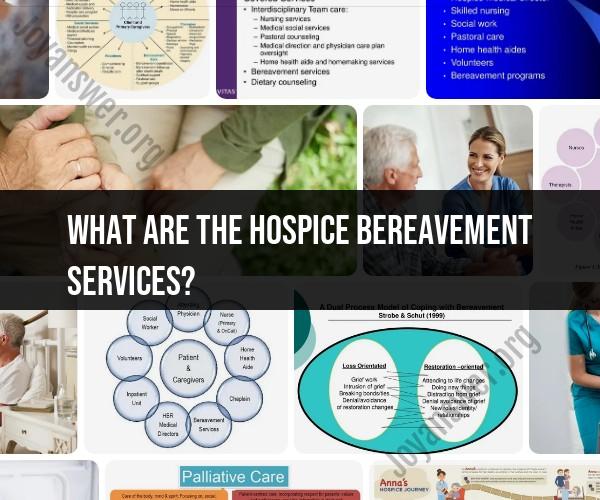What are the hospice bereavement services?
Hospice bereavement services are a crucial component of hospice care that provide support and counseling to individuals and families who are grieving the loss of a loved one. These services are designed to help people navigate the complex emotional and psychological challenges that often accompany the death of a family member or close friend. Here are some key elements of hospice bereavement services:
Grief Counseling: Hospice bereavement counselors offer individual and group counseling to help people cope with their grief. This counseling may address a wide range of emotions, including sadness, anger, guilt, and confusion. It provides a safe space for individuals to express their feelings and explore ways to manage their grief.
Education: Hospice bereavement services often include educational components to help individuals understand the grieving process. This may involve discussions about the stages of grief, common reactions to loss, and strategies for self-care.
Support Groups: Support groups bring together individuals who have experienced similar losses. These groups provide a sense of community and allow participants to share their stories, feelings, and coping strategies. Support groups can be especially valuable for people who may feel isolated in their grief.
Memorial Services and Rituals: Hospice programs may organize memorial services or rituals to honor and remember the deceased. These events provide opportunities for reflection, celebration of life, and the sharing of memories.
Follow-Up and Long-Term Support: Grief doesn't have a set timeline, and bereavement services recognize that people may continue to struggle with their loss for an extended period. Hospice providers often offer long-term support to individuals, checking in at various intervals to assess their well-being and provide ongoing counseling and resources.
Crisis Intervention: In some cases, individuals may experience complicated grief reactions or emotional crises. Hospice bereavement services are equipped to provide crisis intervention and referrals to mental health professionals when necessary.
Resources and Information: Bereavement services often offer informational materials and resources to help individuals navigate practical aspects of grieving, such as legal matters, estate planning, and coping with the holidays.
Customized Care Plans: Hospice bereavement services are tailored to the unique needs of each individual or family. Care plans are developed based on factors like the nature of the loss, cultural considerations, and the individual's emotional state.
Compassionate and Empathetic Support: Hospice bereavement counselors and staff are trained to provide compassionate and empathetic support. They understand the wide range of emotions that accompany grief and are there to listen without judgment.
Continuity of Care: Hospice providers often have a strong relationship with the patient and their family before the patient's death. This continuity of care allows for a smoother transition into bereavement services and can help build trust with the grieving family.
Hospice bereavement services play a vital role in helping individuals and families cope with the profound impact of loss. These services provide a supportive and healing environment where people can navigate their grief journey, find connections with others who share similar experiences, and ultimately work toward healing and resilience.











